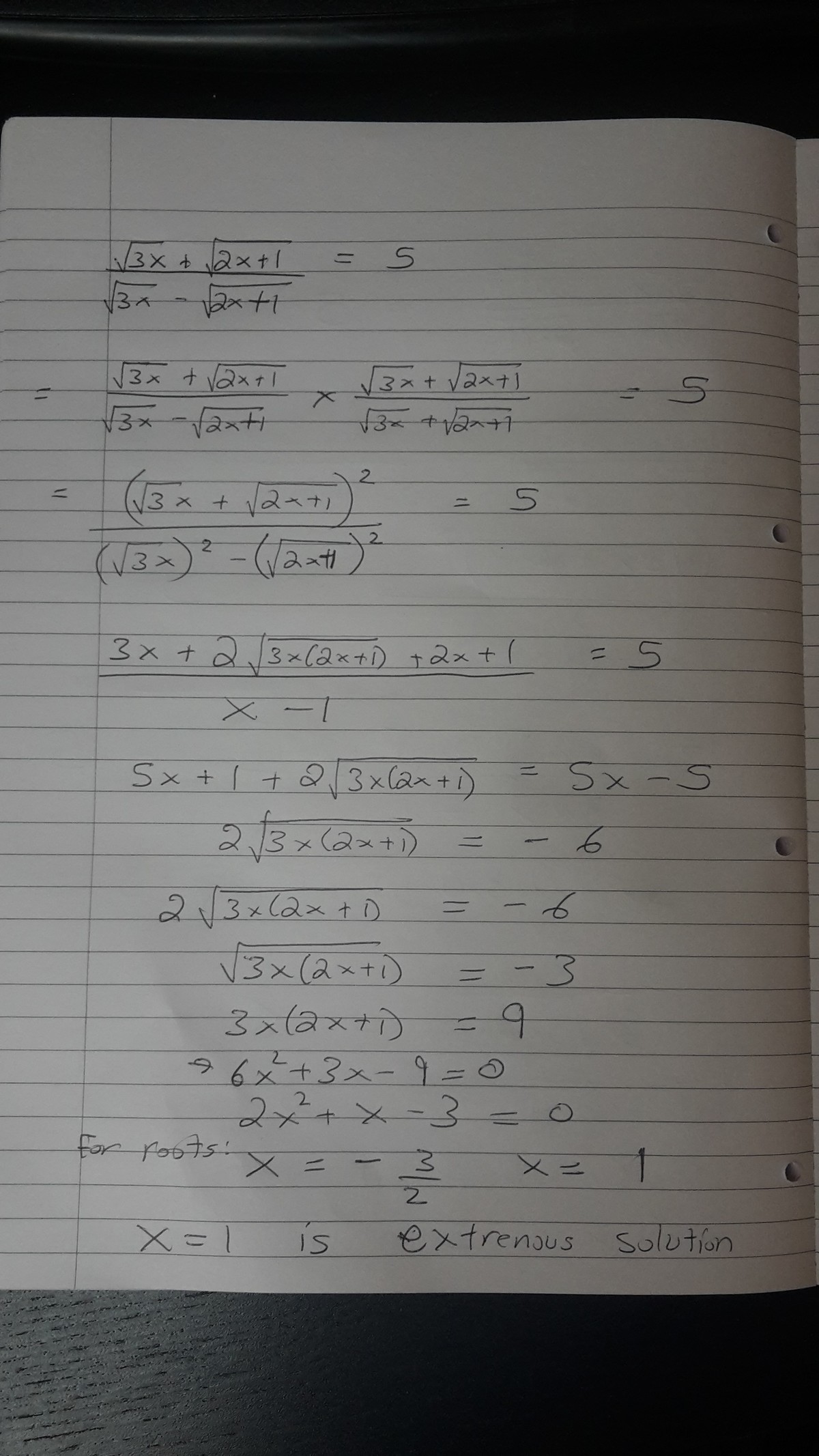I learnt this in 5th
3 x − 2 x + 1 3 x + 2 x + 1 = 5
Find the value of x satisfying the equation above.
Clarification: For this question, we are working over the complex numbers.
The answer is -1.5.
This section requires Javascript.
You are seeing this because something didn't load right. We suggest you, (a) try
refreshing the page, (b) enabling javascript if it is disabled on your browser and,
finally, (c)
loading the
non-javascript version of this page
. We're sorry about the hassle.
5 solutions
Please refrain from posting inappropriate images. I have removed the image to this problem.
I learnt componendo and dividendo in class 5 th.. :P
Log in to reply
did you also learnt complex no.s at same time!!!!!
I got quadratic equation after rationalizing and removing root sign.And I got answers as 1 and -1.5.For 1 our equation has zero in denominator.
How is d=1?
i learnt in class 7
This should be easier:
3 x − 2 x + 1 3 x + 2 x + 1 = 5 ⇒ 3 x + 2 x + 1 = 5 ( 3 x − 2 x + 1 )
⇒ 6 2 x + 1 = 4 3 x ⇒ 3 2 x + 1 = 2 3 x ⇒ 9 ( 2 x + 1 ) = 4 ( 3 x )
⇒ 1 8 x + 9 = 1 2 x ⇒ 6 x = − 9 ⇒ x = − 2 3 = − 1 . 5
I did it the same way sir ! :)
My answer was the same! The only difference was that I wrote -3/2as my answer and the computer didn't accept it😂
same here,
Same here. :D
But x=-1.5 cannot satisfy this equation because you cannot have negative values inside a square root. Hence this equation has no real solution.
 pp
pp
It can by defining − 1 = i , the imaginary number. A number with both real and imaginary parts is a complex number.
also note that it is not required for numbers to be real (not specified in the question)
Log in to reply
But isn't x =-1.5 a real solution?
Log in to reply
i did not speak about solutions but instead i stated the fact that just because factors are imaginary doesn't mean that their product should follow ..... For example, you could factor x 2 + 1 as (x + i)(x-i) { which is imaginary } .... that doesn't mean it is totally unreal.
we should be a44ble to multiply [sqrt(3x) + sqrt(2x + 1)]/[sqrt(3x - sqrt(2x + 1)] by [sqrt(3x)+ sqrt(2x+1)]/[sqer(3x) + sqrt(2x+1)] =[(sqrt(3x)+sqrt(2x+1)]^2/[(3x -2x -1)]=5. Then 5(x-1) = 3x + 2sqrt(3x)sqrt(2x+1)+ 2x+1,or -6 =2sqrt(3x(2x+1), and 36 = 4(3x)(2x+1), 3 = 2x^2 + x, and 2x^2 +x -3 =0, 2x = -1 +/ sqrt(1 + 24),,2x=-6,4 Ed Gray


did you remember... Componendo and Dividendo???